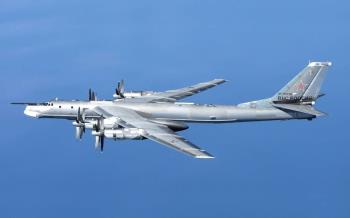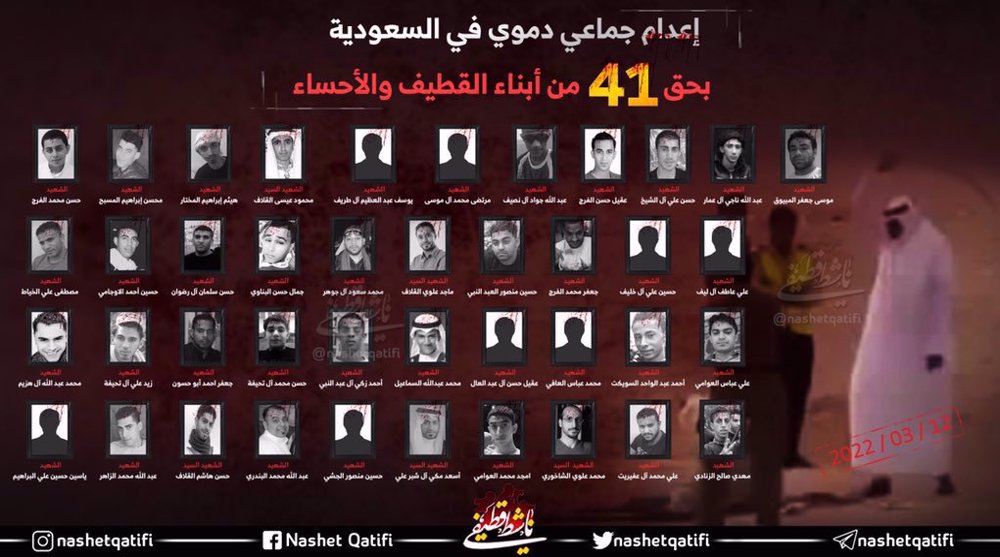Alwaght- The UN High Commissioner for Human Rights Michelle Bachelet condemned the mass execution of 81 people in Saudi Arabia, urging the West-backed regime to bring the ultra-conservative kingdom’s counter-terrorism laws fully into line with international standards.
Bachelet said 41 of those put to death were young men from the Qatif region in the oil-rich, Shiite-populated Eastern Province, after they took part in anti-regime protests to call for greater political participation.
Saudi Arabia has stepped up politically-motivated arrests, prosecution, and conviction of peaceful dissident writers and human rights campaigners, in particular in the Eastern Province.
The province has been the scene of peaceful demonstrations since February 2011. Protesters have been demanding reforms, freedom of expression, the release of political prisoners, and an end to economic and religious discrimination against the region.
The protests have been met with a heavy-handed crackdown, with regime forces increasing security measures across the province.
“Our monitoring indicates that some of those executed were sentenced to death following trials that did not meet fair trial and due process guarantees, and for crimes that did not appear to meet the most serious crimes threshold, as required under international law,” Bachelet lamented.
She also expressed concern that some of the executions appeared to be linked to the devastating Saudi military aggression on Yemen.
The UN rights chief highlighted that carrying out death sentences after trials that do not provide the required “fair trial guarantees” is prohibited by international human rights and humanitarian law, and “may amount to a war crime.”
She said that failure to provide relatives with information on the circumstances of their loved ones’ executions “may amount to torture and ill-treatment.”
“Authorities should return the bodies of those executed to their families,” Bachelet underscored.
The top UN human rights official also voiced her concern over the extremely broad definition of terrorism in Saudi legislation, warning, “This risks criminalizing people exercising their rights to freedom of expression and peaceful assembly.”
“I call on the Saudi authorities to halt all executions, immediately establish a moratorium on the use of the death penalty, and commute the death sentences against those on death row,” she noted.
This is while US State Department spokesperson Ned Price declined to comment if Washington has communicated with Riyadh in the aftermath of the mass execution over the weekend.
“We are continuing to raise concerns about fair trial guarantees,” he said in a briefing on Monday.
“Can’t speak to the timing of that (communication) but we have raised these (human rights) concerns,” Price added.
Meanwhile, British Prime Minister Boris Johnson is set to embark on a visit to Saudi Arabia this week to lobby for action to keep oil prices in check amid an outcry over the Riyadh regime’s biggest ever mass execution.
Informed sources said Johnson wants to appeal to the Persian Gulf state to increase its oil output to replace supplies from Russia.
Crispin Blunt, a backbench Conservative MP, secured an urgent question in the House of Commons, saying Saudi Arabia’s execution of 81 men represented “a new low for human rights and criminal justice in the kingdom, only a week after the crown prince (Mohammed bin Salman) had promised to modernize its justice system.”
Julian Lewis, the Tory chair of the Commons intelligence and security committee, called on the British government to make sure it did not create a “dependency on an unreliable and sometimes hostile regime” as the United Kingdom is seeking to replace energy from Russia with oil from Saudi Arabia.
Labour’s Nadia Whittome highlighted that the UK had licensed £2 billion in arms sales to Saudi Arabia since the beginning of the war in Yemen and called on Johnson to end those sales and call off the visit.
The Green MP, Caroline Lucas, said the government must see the “contradiction” in moving away from Russian oil to go “cap in hand to a murderous tyrant who executes his own people” and asked the government to rule out a “more arms for oil” deal with the kingdom.
The mass executions in Saudi Arabia on Saturday exceeded the total number of the kingdom’s punishments by death throughout last year.
The country’s last mass execution occurred in early January 2016, when Saudi authorities executed 47 people, including prominent Shia cleric Sheikh Nimr Baqir al-Nimr, who had vociferously called for democracy in the kingdom and advocated anti-regime protests. Nimr had been arrested in Qatif, Eastern Province, in 2012.
Since 2015, Saudi Arabia has reportedly executed more than 900 prisoners at an increasing rate. In 2019 alone, Saudi Arabia set a record number of executions after authorities executed 184 people, despite a general decrease in the number of executions around the world.
In April 2020, Reprieve, a UK-based non-profit organization, said Saudi Arabia had carried out its 800th execution. The report added that executions had almost doubled in only five years in comparison with the 423 executions conducted in Saudi Arabia from 2009 through 2014.



























